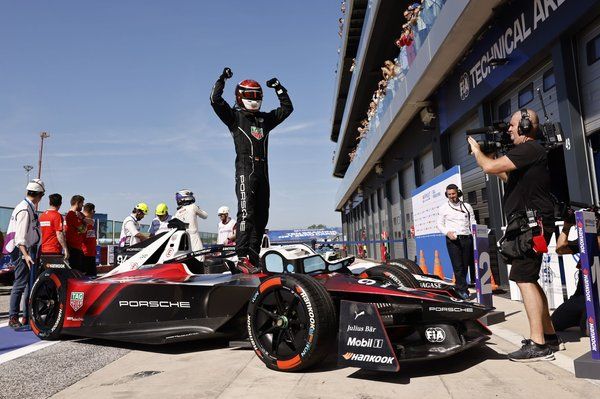Formula E imposes landmark cost cap ahead of 2022-23 season
Formula E will impose a landmark cost cap for manufacturers and teams ahead of the 2022-23 season.

Photo by: Sam Bloxham / Motorsport Images
Greater financial regulation has been a top priority for championship chief executive officer Jamie Reigle during his tenure as the series works to stabilise following the departures of Mercedes, Audi and BMW.
The new rules will come into force on 1 October 2022 to cover the forthcoming Gen3 era, although manufacturers have commenced their development into the new 470bhp powertrain rules following previous meetings of the Technical Working Group.
As reported by Autosport back in July, the race teams will be permitted to spend €13 million per season for 2022-24 although there will be “certain transitional exclusions to address existing contractual commitments”.
This will increase to €15 million per season from the 2024-25 season and beyond but will critically then include driver salaries to facilitate “continued investment in talent” as well as the development of the likely introduction of a Gen3.5 EVO car.
For the powertrain manufacturers, they must operate with a limit of €25 million over two consecutive seasons to cover research and development plus “manufacturing activities and ongoing mandatory services to support Formula E [customer] teams”.
It is currently estimated that the biggest spenders are currently operating with a €40 million budget.
These watershed spending regulations have been approved following the 15 December meeting of the FIA World Motor Sport Council to “monitor and control spending levels of competitors, promote long-term financial sustainability for Formula E teams and manufacturers, the competitive balance of the championship and the sporting fairness.”
Formula E has previously introduced some measures in response to the global health crisis to combat the increased spending by reducing limits on personnel and consumable parts.

Oliver Askew, Andretti Motorsport, BMW iFE.21, Jake Dennis, Andretti Motorsport, BMW iFE.21
Photo by: Andreas Beil
Reigle said: “Over the past 18 months, we have worked closely with the FIA and all participants in the FIA Formula E World Championship to create a regulatory framework that will underpin the long-term financial sustainability for all participants in Formula E.
“When combined with recent enhancements to our technical regulations and sporting formats, this financial system will strengthen Formula E’s value proposition.
“In partnership with the FIA, we have created a framework which places long-term financial success at the core of the championship which will support our existing teams and manufacturers while attracting new competitors and investment.
“The financial regulations are designed to complement our ambitious technical roadmap and enable manufacturers in Formula E to showcase the potential for electric vehicles in the most demanding racing conditions: the FIA Formula E World Championship.
“The shift to electric vehicles is accelerating, Gen3 will set the standard for performance and efficiency. There is no turning back.”
The FIA’s director of Formula E, Frederic Bertrand added: “I must commend the joint efforts of the FIA and Formula E’s financial teams, who have been working on these regulations for some months now, in close collaboration with the championship’s teams and manufacturers.
“The outcome meets all expectations and - on the eve of the introduction of the Gen3 car - will grant all stakeholders a clear vision of where the championship is headed, enabling them to plan for the future with confidence.
“The adoption of such measures enables the FIA Formula E World Championship to offer manufacturers the perfect platform for showcasing their technologies at managed and controlled cost levels while increasing the equitability among teams competing at the pinnacle of electric racing.”
The spending will be regulated by the FIA’s Cost Cap Administration, which will investigate any suspected breaches.
The Andretti Autosport team already has a partnership in place with accountancy firm Crowe UK to navigate the new restrictions.
In further updates approved by the WMSC, the initial two-group stage of the new knockout qualifying format will increase from 10 to 12 minutes to account for teams’ concerns over the limited window in which they could commit to an out-, prep and flying lap.
Additionally, no points will be awarded to the driver who sets the fastest overall lap in qualifying, with three points being solely awarded to the pole-winner.
Be part of the Autosport community
Join the conversationShare Or Save This Story
Related video
Subscribe and access Autosport.com with your ad-blocker.
From Formula 1 to MotoGP we report straight from the paddock because we love our sport, just like you. In order to keep delivering our expert journalism, our website uses advertising. Still, we want to give you the opportunity to enjoy an ad-free and tracker-free website and to continue using your adblocker.















Top Comments